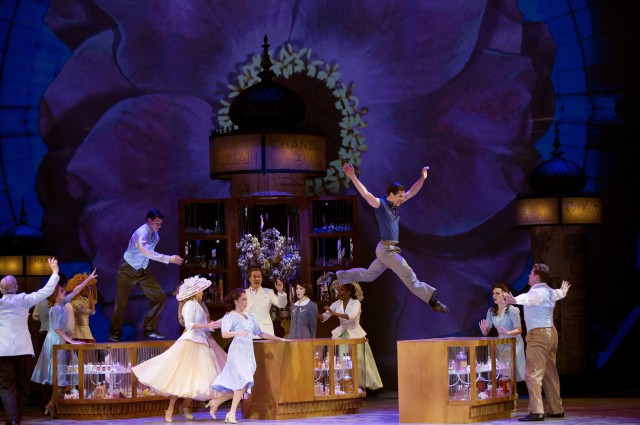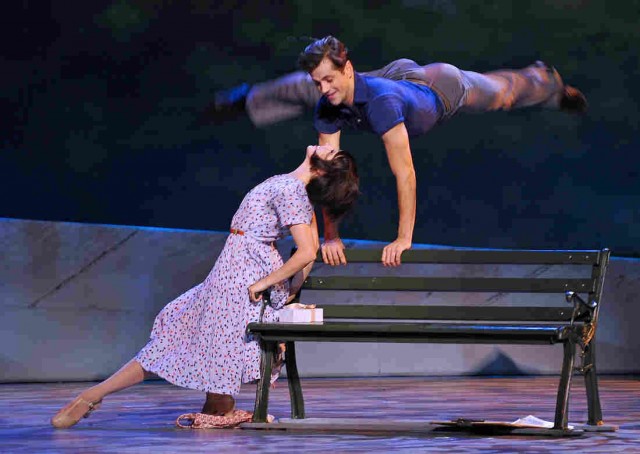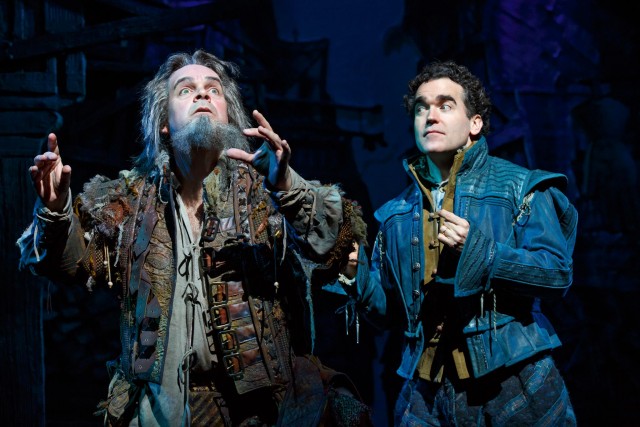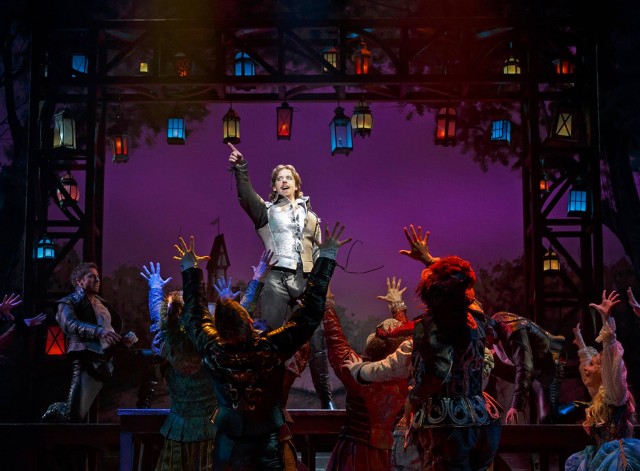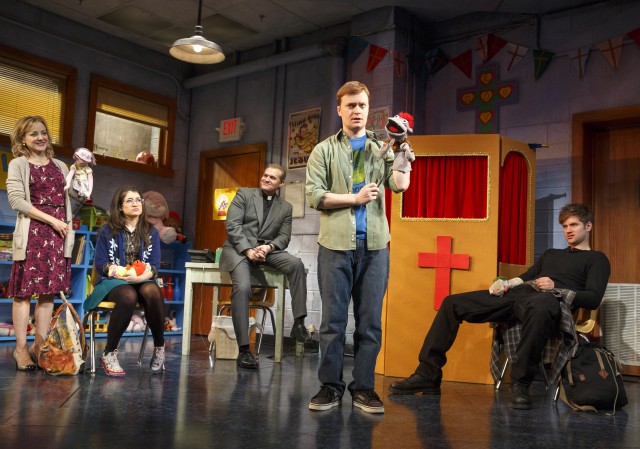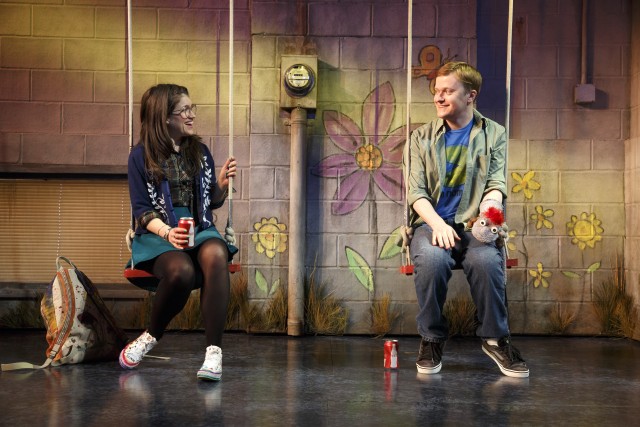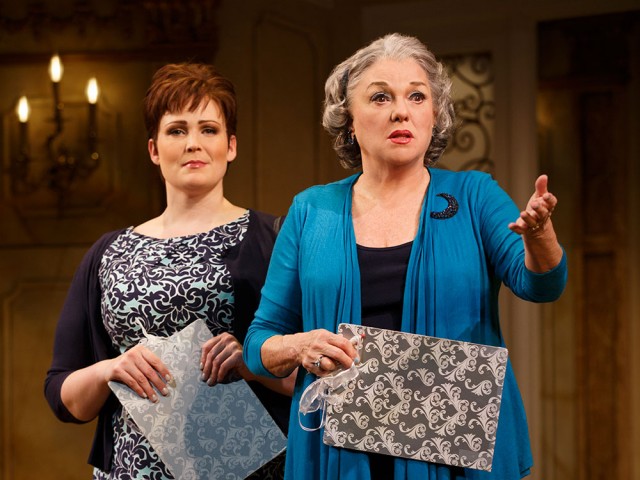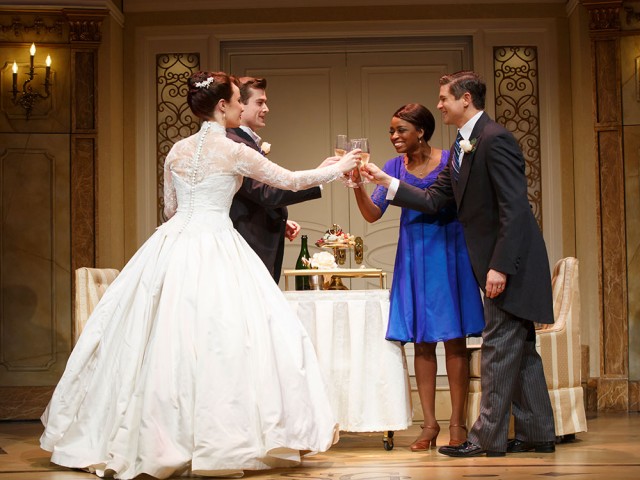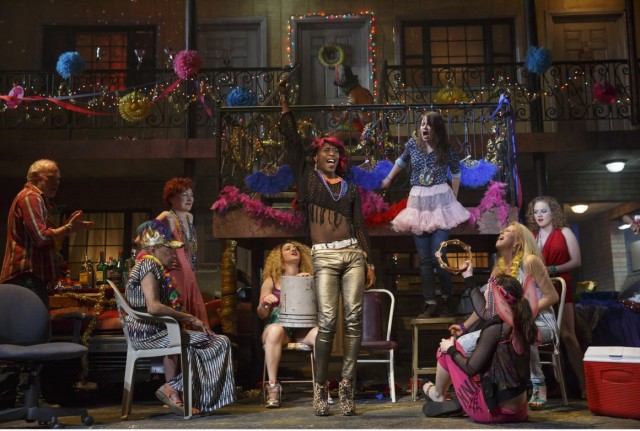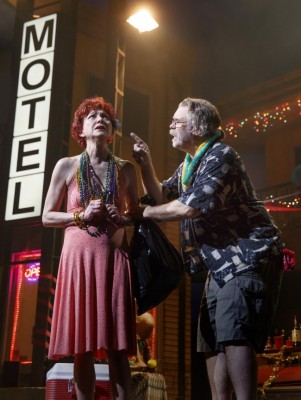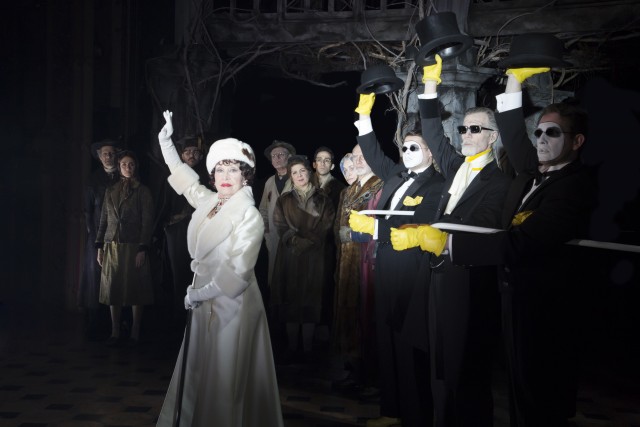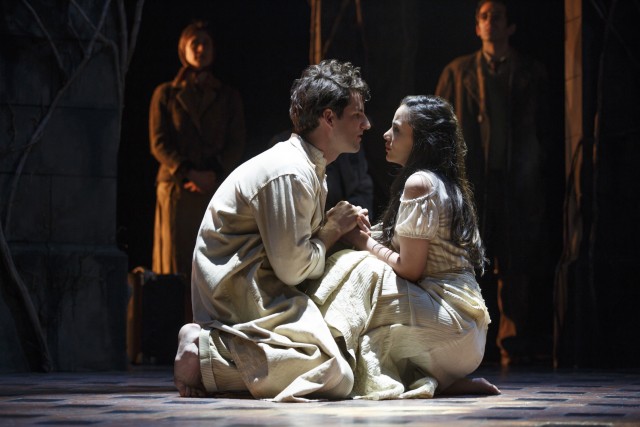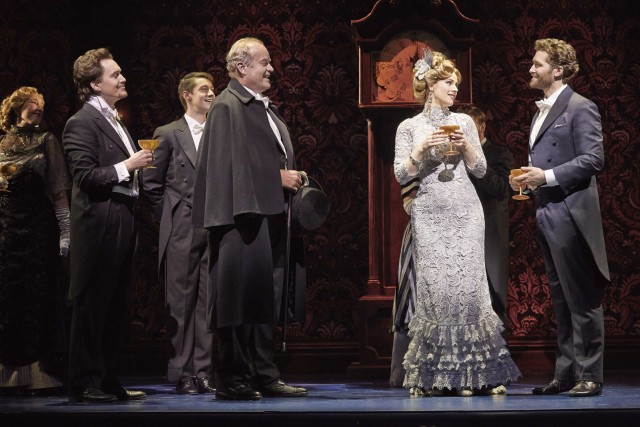
Lord Cannan (Tyley Ross), Charles Frohman (Kelsey Grammer), and Mary Barrie (Teal Wicks) toast J. M. Barrie (Michael Morrison) in FINDING NEVERLAND (photo © Carol Rosegg)
Lunt-Fontanne Theatre
205 West 46th St. between Seventh & Eighth Aves.
Through December 20, $72-$147
findingneverlandthemusical.com
After nearly four years of heavy out-of-town tinkering, Finding Neverland has at last landed on Broadway, but it’s still lost, in desperate need of finding itself. Produced by a very hands-on Harvey Weinstein, whose Miramax company released the 2004 Oscar-nominated film starring Johnny Depp, Kate Winslet, Dustin Hoffman, and Julie Christie, the stage musical has gone through major cast, director, and composer changes before settling on the current Great White Way team: director Diane Paulus, Matthew Morrison as J. M. Barrie, music and lyrics by Gary Barlow and Eliot Kennedy, book by Jerry Graham, and choreography by Mia Michaels. Based on Allan Knee’s play The Man Who Was Peter Pan, the show follows Barrie, a successful playwright dealing with his first flop, as he teeters between two worlds: the high-society lifestyle preferred by his wife, Mary (Teal Wicks), and the more down-home, simple existence lived by the widowed Sylvia Llewelyn Davies (Laura Michelle Kelly) and her four sons, Peter, Jack, George, and Michael (played in various configurations by Alex Dreier, Hayden Signoretti, Noah Hinsdale, Aidan Gemme, Christopher Paul Richards, Sawyer Nunes, and Jackson Demott Hill). His producer, Charles Frohman (Kelsey Grammer), an American, needs him to write a hit, and ideas start percolating as Barrie spends more time with the Davies clan, discovering his inner child with an infectious glee. Little events become fodder for his work, the eventual Peter Pan, or The Boy Who Wouldn’t Grow Up. But while Peter Pan is built around magic, Finding Neverland lacks any real spark.
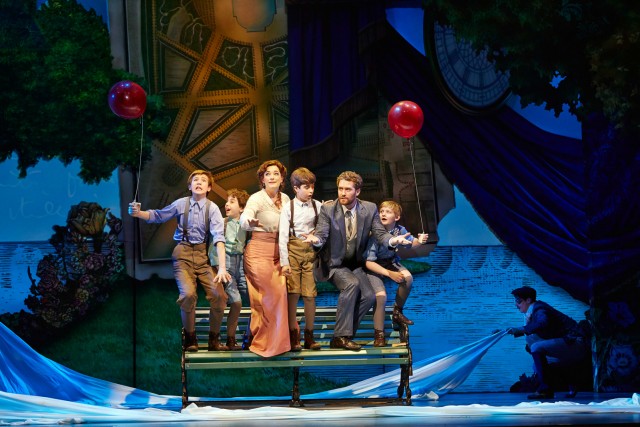
J. M. Barrie (Michael Morrison) turns his experiences with the Davies family into PETER PAN in Broadway musical (photo © Carol Rosegg)
Whenever you see a show, you want to be completely invested in it, lured in by its magic, whether a comedy, a drama, or a glitzy musical. Early in the second act, when Frohman’s acting troupe is drinking together in a pub, its crabby erstwhile star, Mr. Henshaw (Paul Slade Smith), turns to Frohman and asks, “Do they say ‘cheers’ where you come from, mate?” The completely unnecessary reference to the television series that made Grammer famous brings Finding Neverland to a screeching halt; sure, many people in the audience explode in laughter — much as they do when Larry David throws in a gratuitous catchphrase from Curb Your Enthusiasm into the disappointing Fish in the Dark — but it takes you right out of the fantasy, which is what Peter Pan is all about, and the show never recovers. The ballads are drippy, the acting often goes too far over the top — Smith, Josh Lamon as his cohort Mr. Cromer, Tyley Ross as Lord Cannan, and Carolee Carmello as Mary’s mother are particularly annoying — and the way Paulus (Pippin, Hair) and Michaels (So You Think You Can Dance) depict flying is a supreme letdown. It does have its moments — there is a sweet energy between Morrison (The Light in the Piazza, Glee) and Kelly (Mary Poppins, Peter Pan), Grammer has several funny bits, and some of the staging is clever — but it’s all frustratingly inconsistent. Finding Neverland tries way too hard to be a feel-good experience but instead never takes flight.
